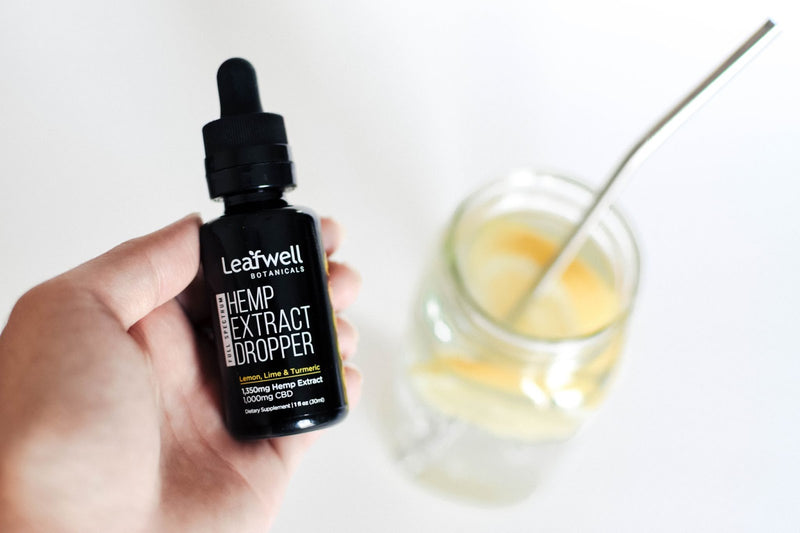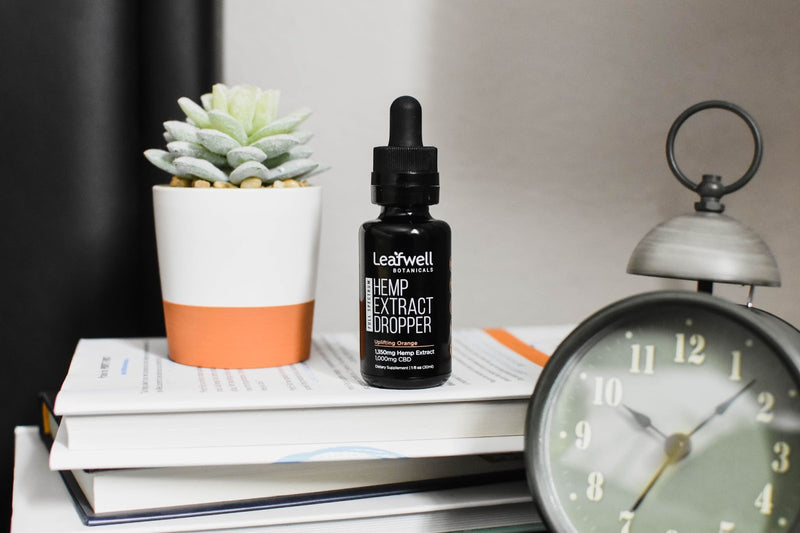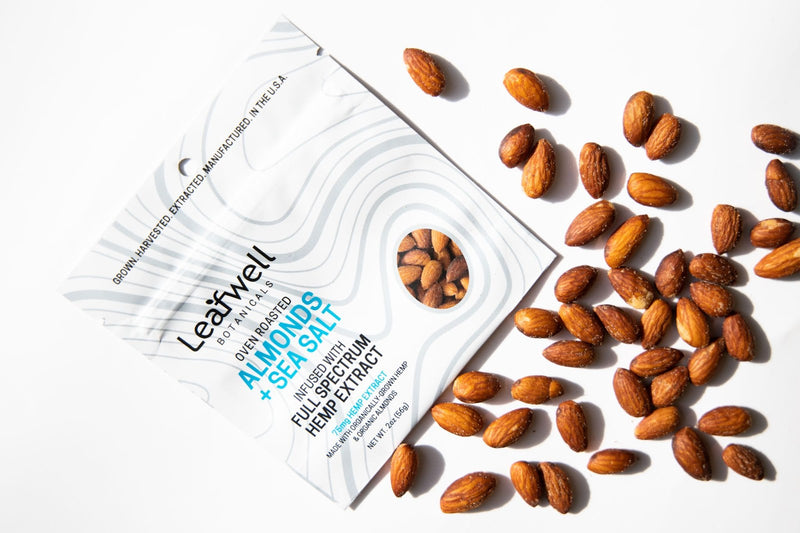Does CBD Oil Expire? Shelf Life and Other Factors

CBD oil has many incredible benefits for your health. Some people use CBD oil to soothe some tension they may be experiencing throughout their body. Other people use CBD to calm their nerves or to help them sleep better. CBD also has benefits for dogs, cats, horses, and even birds! Many pet owners have successfully improved the quality of life of their pets with the help of CBD.
Of course, for CBD to be effective, it has to be fresh. After all, expired CBD oil will not be able to give you the benefits that you want and need. This is why it is important to know how long CBD oil can last on your shelf, and when it is time to move onto a new bottle.
Beyond the shelf life of CBD oil, this article will tell you everything you need to know about this impressive compound, including what you should look for in a high quality CBD product. Keep reading to find out more!
What is CBD Oil?
CBD stands for cannabidiol. It is a cannabinoid that is found in the cannabis family of plants, which includes hemp and marijuana. CBD oil, in its base form, is created by extracting CBD from a cannabis plant and combining it with a carrier oil like MCT oil. Additional plant nutrients like terpenes and other cannabinoids, sometimes including a trace amount of THC, can also be extracted along with the CBD and blended into an oil, offering synergistic benefits compared to just isolate CBD alone. When all of these beneficial compounds are extracted, including THC, it’s called full-spectrum CBD; without the THC, it’s referred to as broad spectrum.
Cannabinoids are naturally-occurring compounds that interact with the body’s endocannabinoid system. This system plays a role in mood, appetite, sleep, memory, metabolism, stress, pain, and so much more.
The two most popular cannabinoids are CBD and tetrahydrocannabinol, or THC. THC also comes from the cannabis plants, and is the most well known intoxicating component in marijuana that causes you to experience a high. CBD, on the other hand, is not intoxicating and does not cause any type of high.
THC is found in high concentrations in marijuana, but in hemp plants, it is present in significantly lower amounts (legally less than 0.30%) given their genetics and are not high enough to cause any type of intoxicating effect. All CBD oils besides some of those sold at dispensaries are derived from hemp rather than marijuana. Regardless of the source, any product marketed as hemp must be less than 0.30% THC.
The difference between CBD and THC is important to clarify since they are often confused. But just to make it extra clear--CBD oil contains very little if any THC (exact amount depends on the type of extract & potency), and will not get you high.
In addition, when CBD oil is made, the CBD is not the only thing that is extracted from hemp and depending on the type of CBD oil what’s been extracted will vary.
Consider this: our Hemp Extract Capsules (Potency 2) contain 55 mg of full spectrum hemp extract per soft gel, of which 40 mg is CBD. The other 15 mg in each soft gel is made up of a variety of other phytocannabinoids, terpenes, and beneficial plant material. So when you use CBD oil you are not just getting the benefits of CBD, you are also consuming a variety of natural ingredients that promote your overall health through the entourage effect, a synergistic benefit-maximizing effect that can only take place with full spectrum hemp extract (and to a lesser extent broad spectrum) where all plants parts enhance each others’ benefits.
CBD has many beneficial uses. Because of its relationship with the body’s endocannabinoid system, CBD can promote mental wellness, support the quality of your sleep , and help your body be in a more balanced state. Research into the many ways CBD can be used and all of its potential health benefits is ongoing.
If you have interest in adding CBD oil to your daily routine, you should first talk to your primary care provider. This is particularly important if you’re taking any medications, suffer from any medical conditions, and/or are pregnant or any other critical points in life.
All that said, most people tolerate CBD well and there are very few reported side effects, and in most cases, those side effects are actually related to the other ingredients (such as ingesting too much oil or a flavor your stomach doesn’t agree with) which is why we recommend higher potencies so you can take less.
Now that you know the basics on all things CBD, it is time to address the title question: does CBD oil expire?
Can CBD Oil Expire?
The short answer to this question is yes, CBD does in fact “expire.”
However, all natural things expire, so this is actually a good thing . If any company tells you their CBD oil does not expire, you should probably be worried if. Would you want your supplements to have the same shelf life as a Twinkie?
The good news is that even though CBD does expire eventually, it happens to be a very stable supplement and it is typically good to use for about 14 months to two years after purchase.
Factors that drive the ultimate shelf life of your product include the type of product, preservatives, carriers, and all the other ingredients involved. It’s also important to note that if you’re taking purely oil based products the expiration date most likely just means that the product has gone rancid (bad taste, losing its potency / benefits, etc.) as opposed to microbial contamination (though you can never be too careful) associated with water based products.
The average container of tinctures or CBD capsules will have enough product to last you one to two month(s) (if taken daily), which means you will not have to worry about taking an expired or less-than-fresh dose of CBD if you take CBD regularly.
That being said, you should be careful with any CBD product that you have had past its expiration date. There is no evidence that expired CBD oil poses any threat to your health or has any risk of adverse side effects, but like we mentioned above it will ultimately depend on the other ingredients involved.
If you are worried that your CBD oil product may be expired, the first thing you should do is look for an expiration date on the bottle. If the expiration date is not on the bottle there should at least be a batch code, and you should reach out to the company to ask them what the expiration date would be, and if the date is past, you should ask if they’ve retested the product to see if it’s still safe to consume. If they have not, you should discard the product.
The way you store your CBD oil product can affect how long it lasts, so be sure to read any instructions from the manufacturer.
Here at Leafwell Botanicals, for example, we recommend that you store our CBD capsules in a cool, dry place away from sunlight. This will keep the product from overheating (which accelerates expiration) and potentially melting the CBD capsule encapsulation. While our full spectrum tinctures run less of a risk of melting, we similarly recommend that you store them in a cool location away from sunlight to best preserve them.
In addition to following the manufacturer’s instructions, you should also make sure you keep the cap on the bottle sealed tight unless you are using it, so as to avoid air and other particles from oxidizing or contaminating the product. You should also refrain from transferring the product to a separate container, as the bottle provided was designed specifically to optimize the product’s shelf life.
If you notice any changes in the smell, consistency, or color of your CBD oil product, it is potentially expired. Trust your instincts and buy a new bottle if/when any of these things occur.
Finally, the best way to make sure your CBD oil will last as long as possible is buying products from high quality, reputable brands that have high-quality products to start.
Where Can You Find The Best CBD Products?
There are a few things you should look for in a brand when buying CBD oil:
-
Are they transparent? Meaning, are they open about how and where their products are made? Are there any questions you have that are not answered on their website? And do they clearly state the results of any third-party testing (see #4)? If you have any unanswered questions don’t hesitate to reach out to the brand for the answers you’re looking for (cross-check their answers with others). If they’re shady or don’t want to give you answers we highly recommend taking your business elsewhere.
-
Do they make dubious promises/claims? For example, do they make any boasts about how long their product’s shelf-life is or how their product cures cancer or some other diseases? If so, be wary. If they claimed long shelf life it is likely they used certain additives or chemicals to preserve the product for longer even though it is unnecessary. If they’re making medical claims left and right, they are breaking the law and are making unsubstantiated claims, and if they’re cutting corners and disregarding the law with the claims they make, then where else are they cutting corners?
-
Are their products third-party tested? To ensure that the information on the label is close to what’s actually inside the product, it needs to be third-party tested by an accredited facility. Information about third-party testing and the accompanying results should be made easily available by any reputable CBD brand.
-
Are they using any unnecessary ingredients? Key things you should be on the lookout for are fillers, synthetic ingredients, artificial preservatives, artificial flavors, and even “natural” flavors. These are all ways company’s cut corners that you do not want to be consuming. When you decide to take CBD supplements (or any better for you product), you’re not signing up for bad ingredients that aren’t any good for you. Read the label carefully and look for any red flags.
- Are their products (or their ingredients) organic? Look for ingredients lists with ingredients that say “organic” to confirm the ingredients are organic. Ideally the brand has a USDA certified organic logo on their packaging so you know someone verified their processes and ingredients (we’re expecting to have this soon!). Though organic products are by no means guaranteed to be contaminant free, they are processed in a much more caring way, there are significantly less pesticides allowed to be used (many farmers don’t use any), soil sample tests are required before growing on the land, and manufacturers processes are checked and verified to ensure no contamination.
At Leafwell Botanicals, we are committed to providing you with only the highest quality CBD products. This is why we take these guidelines very seriously.

Firstly, our hemp is grown and will only ever be grown in the USA and we assemble and manufacture all of our products locally in our facilities in Colorado. We have information on everything from our third-party testing results to our extraction process openly available on our website, and we’re here for you in case you have any questions. Finally, all of our ingredients are natural and organic, and our products are free from any unhealthy additives.
We want to help you change your life for the better, and the way we can do so is by making our products as premium as possible without the crazy prices. By using our CBD oil products, you can promote your overall wellness and take your health to the next level!
Sources
Does CBD Oil Expire? 10 Things You Should Know - Healthcare Weekly
Does CBD Oil Expire? (newsweek.com)
CBD: understanding how CBD works with our bodies (healtheuropa.eu)







